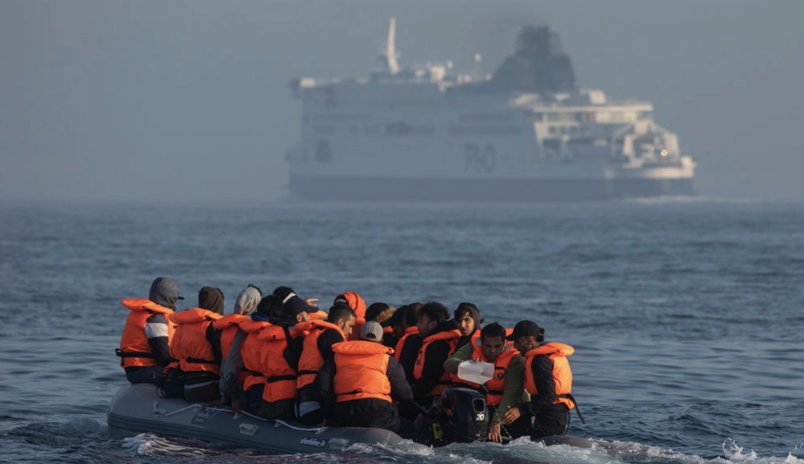Who could not be in favour of humanitarian visas for asylum-seekers who would not have to cross the Channel in a dinghy? Humanitarian visas are the refugee lobby alternative to the Government’s plan to disincentivise such irregular entry by sending people to Rwanda.
But it doesn’t solve the underlying selection problem faced by all rich countries when it comes to refugees and asylum-seekers. How should recipients of humanitarian visas be chosen? Refugee organisations surely do not think that anyone who applies should get one. For there is a lot of misery in the world, and it is not that hard to get to the English Channel.
Rich countries’ governments pay lip service to the idea of asylum. But thanks to the greater ease of movement since the original refugee rules were established in the 1950s, and the more liberal human rights regimes that prevent most people from being deported, tens of millions of people could legitimately claim the right to stay in the UK. So UK Governments, of all colours, as well as those of other rich countries, spend millions of pounds each year doing their hardest to stop people coming by normal and irregular routes.
Asylum-seeking thus becomes a game of cat and mouse between the border authorities and would-be asylum seekers, and a survival of the fittest free-for-all, mainly undertaken by young men from families wealthy enough to pay the smugglers. When the numbers are low and the method of entry, via visa over-staying or coming on lorries, is invisible, the issue excites little attention. But when a highly visible new route opens up, like the Channel crossings, and numbers escalate, the Government invents new ways, such as deportation to Rwanda, to try to close it down.
So wouldn’t it be nice if there were such a thing as safe and legal routes that the most needy refugees could use but with Government control on selection and numbers? In the last few weeks, and notably in a Policy Exchange speech by Immigration Minister Robert Jenrick, the Government has talked more about such routes, aware that a hard line in the Channel, maybe including a suspension of some human rights legislation, needs moral legitimacy.
The first point the Government makes is that there are safe and legal routes: indeed, around 500,000 people have come through them since 2015. Most recently the Syria programme (20,000), various Afghan programmes (21,000), the Ukraine scheme (over 150,000) and Hong Kongers (90,000).
Refugee lobby critics complain, reasonably enough, that there is no generic safe route for people in dire circumstances in, say, Iran or Iraq. The answer to this is to create a more general safe route, modelled on the successful Syria programme, in which the UK authorities would select people, usually women and children, from UNHCR camps in Asia, Africa or the Middle East, possibly with help from refugee organisations.
Numbers would be capped at, say, 15,000 a year, or more if the high inflows on current country-specific programmes fall. If someone from Iran or Iraq or Eritrea can get to France, they can get to a UNHCR camp and apply to join the queue for the UK. And, learning from the Ukraine scheme, those who have arrived in the UK should where possible be placed with family or community sponsors, as housing remains one of the biggest blockages and costs (around £2bn a year at the last count) to bringing people here.
A third, and much smaller, safe and legal route — call it the red route — would be reserved for the people for whom the 1951 Refugee Convention was originally designed: those facing acute persecution and whose lives may be threatened. Think of the gay son of a Taliban leader who has managed to escape to a camp in Pakistan but knows that his father wants him dead, or an opposition activist in an African state who fears an accidental death is being arranged for him. In order to get onto this danger list you would need to convince a standing committee of Home Office representatives, responsible NGOs (such as Amnesty), security services and the local UK ambassador.
Such a three-tier safe and legal system would not stop all irregular entry, but it would justify taking a hard line against it and enable Britain to do its bit for the refugee problem in a way that is fair on would-be asylum seekers and on British citizens, especially those in the poorest parts of the country which house the most refugees.
David Goodhart is the author of Head, Hand, Heart: The Struggle for Dignity and Status in the 21st Century.











Join the discussion
Join like minded readers that support our journalism by becoming a paid subscriber
To join the discussion in the comments, become a paid subscriber.
Join like minded readers that support our journalism, read unlimited articles and enjoy other subscriber-only benefits.
Subscribe